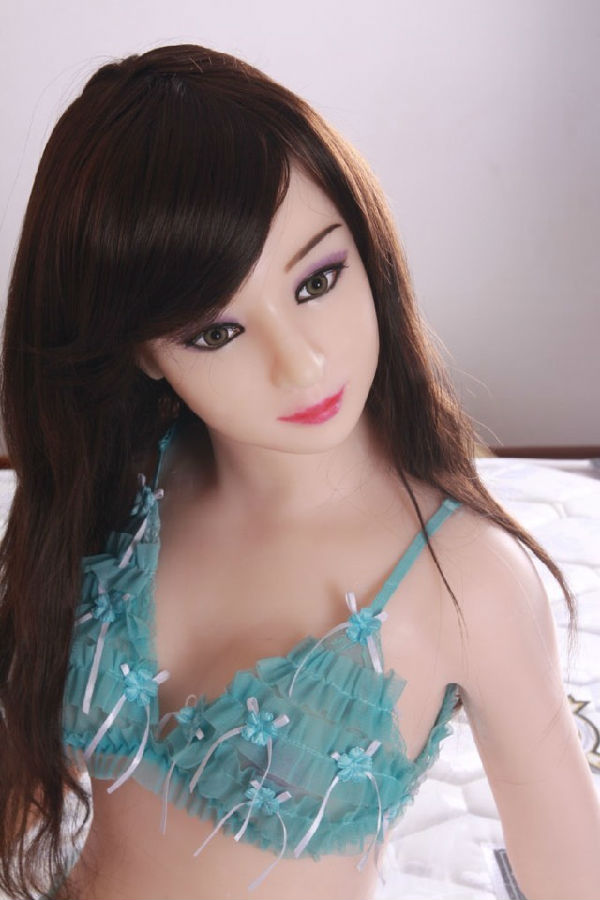According to Smith, any sort of non-reproductive sexual behavior hashistorically been seen as perverse. These days, though, many people are okaywith sex that isn't reproductive. We're less okay with emotional attachmentsthat aren't socially productive, and so it seems the distaste is strongest forthe small subset of men who consider themselves to be in romantic relationshipswith their dolls, rather than just using them for sex. We expect a relationshipto involve mutual consent, a kind of equality and reciprocity that isimpossible with a doll. By its very nature, the relationship is one-sided—ateeter-totter with only one person sitting on it.
據(jù)史密斯說,歷史上任何不以傳宗接代為目的的滾床單都被認為是邪惡的。近年來,很多不生孩子的人也很性福。跟缺少情感的替代品(玩偶)在一起不是有效的社交行為,更令人強烈厭惡地的是他們認為同玩偶是種很浪漫的關(guān)系,而不僅僅只是性行為。但我們期待的雙方認可互惠平等的關(guān)系,是不可能在玩偶身上得到的。由于這種本質(zhì),這段像蹺蹺板樣平衡呃關(guān)系就只有一個人坐在一邊。

But realistic dolls often do inspire real affection, and even devotion. Somemen assign personalities and preferences to the dolls they design (Davecat'sdolls even have Twitter accounts), and they talk about them as one would a livepartner. "There is genuine empathy here,” Smith writes, "what the Germans callEinfurlung, an entering into the feelings of an other."
但現(xiàn)實中玩偶也激發(fā)了真正的情感,甚至忠誠。一些人設(shè)計的娃娃還設(shè)定了個性和喜好(戴維貓的玩偶有推特。)他們像生活伴侶一樣談論她。“這是最典型的移情心理,”史密斯寫道“德國人稱之為Einfurlung(大約好像是戀物癖這類意思),進入了另外一種感情。”
A love for one's own creation, though, is also, in a way, self-love, ornarcissism. "This is why so much of it has to do with masturbation," Smithsays. "These things are not unconnected."
雖然,個體用這種愛自己或者說自戀的方式創(chuàng)造了愛。“這也是為什么那么多人手淫,”史密斯說“這些事物之間并未沒有關(guān)聯(lián)。”
Narcissistic or not, that attachment can become isolating. Smithpoints out that, especially in the age of technology, intimate relationshipswith objects aren't so uncommon. "Think about the way you use your iPhone," hesays. "You hold it, and you stroke it, and you scroll. You're holding it toyour ear as we speak. It's kind of a part of you. It's an extension of you." But things are different when the object is human-shaped and the relationshipis sexual. Owning a doll can have "social and psychological consequences formen who want to develop these intimate and erotic relationships with aninanimate human form. I don't want to pathologize anyone, but I think there's adanger around the way that processes like that objectify men's relationshipswith themselves in a way that restricts an authentic emotional intelligence."
不管是不是自戀行為,替代品(玩偶)都會讓人變得更加孤僻。史密斯強調(diào),尤其是在科技時代,同物體的親密關(guān)系很常見。“想想你用‘愛瘋'的方式,”他說,“你拿著它,撫摸它,來回翻轉(zhuǎn)。當我們說話時你拿它貼著耳朵,就好像它是你的一部分,是你的身體的延生。”而跟人形物體滾床單則是不同的一件事。玩偶擁有者“同無生命人形物品發(fā)展出的這段親密而色情的關(guān)系中,社交和心理占據(jù)重要地位的需求得到了滿足。我不想說誰病態(tài),但這確實很危險,男人們用他自己想要的方式來物體化一段關(guān)系,這制約了真正的情感發(fā)展。”
Sarah Valverde, a researcher and mental health therapist, did her mastersthesis in psychology on the demographics and psychological characteristics ofsex doll owners. She says that many of the men she surveyed for her researchfelt shame or embarrassment about owning sex dolls. But contrary to popularstereotypes, they were just as satisfied with their lives, on average, as thegeneral population, and didn't suffer higher-than-normal rates of depression orother mental illness. Owning a sex doll "is certainly a deviant sexual behaviorfrom our norm," she says. "But unless it's all-consuming and it impacts otherareas of life, we really can't define it as a disorder."
SarahValverde研究員和心理健康專家 ,她的碩士論文是關(guān)于玩偶擁有者心理特性的。她說她研究調(diào)查很多略顯害羞尷尬的娃娃擁有者,與傳統(tǒng)觀點相反,他們對生活滿意的滿程度與普通人持平,沒有遭受過抑郁癥或其他精神疾病的苦難折磨。擁有一個性愛娃娃“無疑阻止了我們的出軌行為”她說,“除非它到處出現(xiàn)并影響到其它方面,不然我們真不應該定義它為障礙。”













